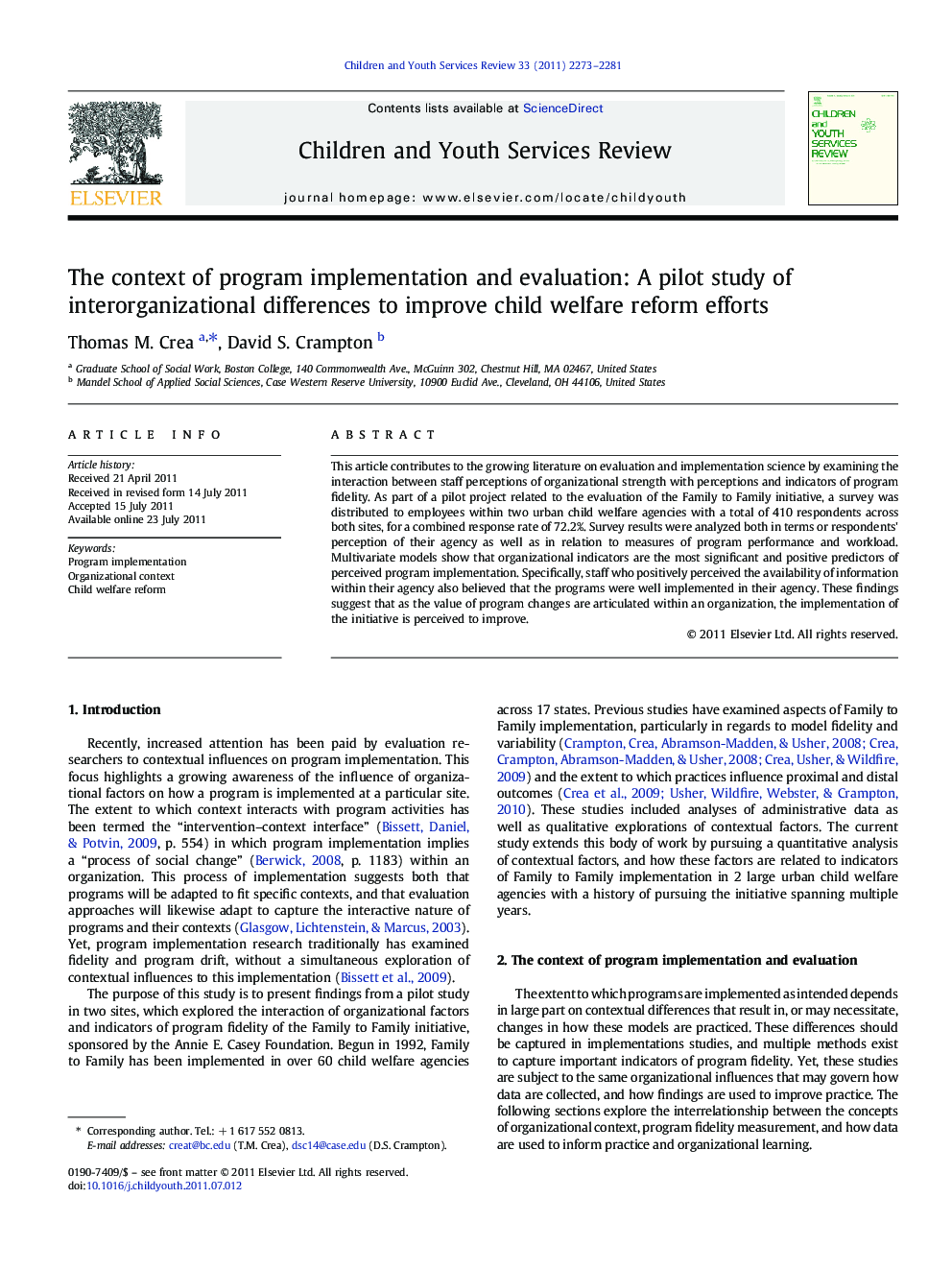| Article ID | Journal | Published Year | Pages | File Type |
|---|---|---|---|---|
| 346229 | Children and Youth Services Review | 2011 | 9 Pages |
This article contributes to the growing literature on evaluation and implementation science by examining the interaction between staff perceptions of organizational strength with perceptions and indicators of program fidelity. As part of a pilot project related to the evaluation of the Family to Family initiative, a survey was distributed to employees within two urban child welfare agencies with a total of 410 respondents across both sites, for a combined response rate of 72.2%. Survey results were analyzed both in terms or respondents' perception of their agency as well as in relation to measures of program performance and workload. Multivariate models show that organizational indicators are the most significant and positive predictors of perceived program implementation. Specifically, staff who positively perceived the availability of information within their agency also believed that the programs were well implemented in their agency. These findings suggest that as the value of program changes are articulated within an organization, the implementation of the initiative is perceived to improve.
► We explore two large, urban child welfare agencies who have implemented the Family to Family initiative. ► We examine interorganizational differences in perceptions of organizational context and program implementation. ► Organizational indicators significantly predict perceived implementation, particularly related to information sharing. ► Program implementation may be improved if the value of program changes is clearly articulated by administrators.
